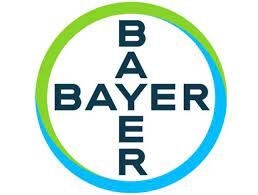A fast-moving and complex legal and regulatory landscape has left the state of affairs on glyphosate products, including Bayer’s flagship product Roundup, more conflicted than ever.
While Bayer has won four verdicts in a row in court against lawsuits claiming that glyphosate caused the plaintiffs’ lymphoma, several other court decisions have worked against it and the Supreme Court left a $25 million judgment in place that could expose Bayer to further billions of dollars’ worth of judgments.
The court’s decision to decline a writ of certiorari requested by Bayer also left in place a required California warning label that connects glyphosate with cancer.
Agriculture groups including the American Farm Bureau Federation, American Soybean Association, National Corn Growers Association, National Association of Wheat Growers, and National Cotton Council issued the following statement regarding Supreme Court’s decision to deny the writ of certiorari that Bayer had requested petition to hear Monsanto v. Hardeman:
“We are disappointed the Supreme Court has decided not to hear this case, which has significant implications for our global food supply and science-based regulation. With the conflict in Ukraine threatening food security around the world and the persistent dangers posed by climate change, too much is on the line to allow the emergence of an unscientific patchwork of state pesticide labels that would threaten grower access to tools needed for productive, sustainable farming. We will be discussing the implications of the court’s announcement and will determine what reforms may be needed to ensure a patchwork of state labels does not jeopardize grower access to these vital tools or science-based pesticide regulation.”
The same group of ag organizations had sent a letter to President Joe Biden on May 23 protesting his solicitor general’s brief urging the court against taking up the case. “In a disturbing departure from previous bipartisan administrative policy, the Solicitor General’s brief argues federal pesticide registration and labeling requirements do not preclude states from imposing additional labeling requirements, even if those requirements run counter to federal findings,” the group’s letter said.
The Supreme Court’s decision may cause Bayer to reconsider its strategy.
Bayer announced a five-point plan in May 2021. Bayer offered to withdraw glyphosate products from the residential garden market as part of the plan but has not yet done so. Most of the lawsuits have come from residential rather than commercial users. Bayer has said it has resolved around 107,000 of a total of about 138,000 cases related to the herbicide. Most new cases are filed in state courts, with more being added daily. California alone has about 4,000. Miller & Zois, the law firm that set up the Lawsuit Information Center blog that monitors and tracks glyphosate cases, said its attorneys get Roundup calls “every day.”
At the same time, Bayer continued to maintain that scientific evidence showed glyphosate was safe. The spate of Roundup lawsuits was fueled by a single 2015 finding by a European health agency that glyphosate “probably” contributed to cancer. Bayer has continued to rely on a host of federal government findings that it is safe and to reject state warning labels, especially in California, even while it sought to put the lawsuits behind it with block settlements.
Bayer was encouraged by a string of recent wins in court against Roundup plaintiffs. On June 18, Bayer won a case in Oregon, Johnson V. Monsanto. On June 9, a Kansas City, Missouri, jury handed Bayer a Roundup win in the Shelton trial, determining that Roundup is not the cause of the plaintiff’s cancer. That win followed favorable verdicts in Clark and Stephens counties.
But on June 17, the 9th U.S. Circuit Court of Appeals told the Environmental Protection Agency to reconsider its 2020 decision, made under the Trump administration, that glyphosate does not present “any reasonable risk to man or the environment.” That was a ruling Bayer relied on to challenge state-mandated warning labels.
But on June 21, Bayer suffered a major blow when the Supreme Court refused to dismiss the Hardeman case, leaving in place a $25 million judgment against Bayer. The court let the award stand without comment. Edwin Hardeman originally won an $80 million judgement in 2019 on a finding that his non-Hodgkins lymphoma was caused by Roundup, but the award was later reduced to $25 million. Bayer has said that a negative ruling in Hardeman could jeopardize future pesticide production.
On the other hand, a European science agency declared on May 30 that glyphosate was not carcinogenic. The European Chemicals Agency, whose EU acronym is ECHA, concluded again that while glyphosate could cause eye damage in humans and was toxic to aquatic life, it should not be classified as a carcinogen.
Lawsuits aside, the global food uncertainty resulting from Russia’s invasion of Ukraine, widespread publicity about food shortages and concerns about how climate will affect food supplies has apparently been good for Bayer. In May, Bayer reported the company’s crop-science unit, its largest division, reported a 22% sales jump to about $9.03 billion in the first quarter of 2022 amid higher prices for herbicides, corn seed and other products.
David Murray can be reached at [email protected].




